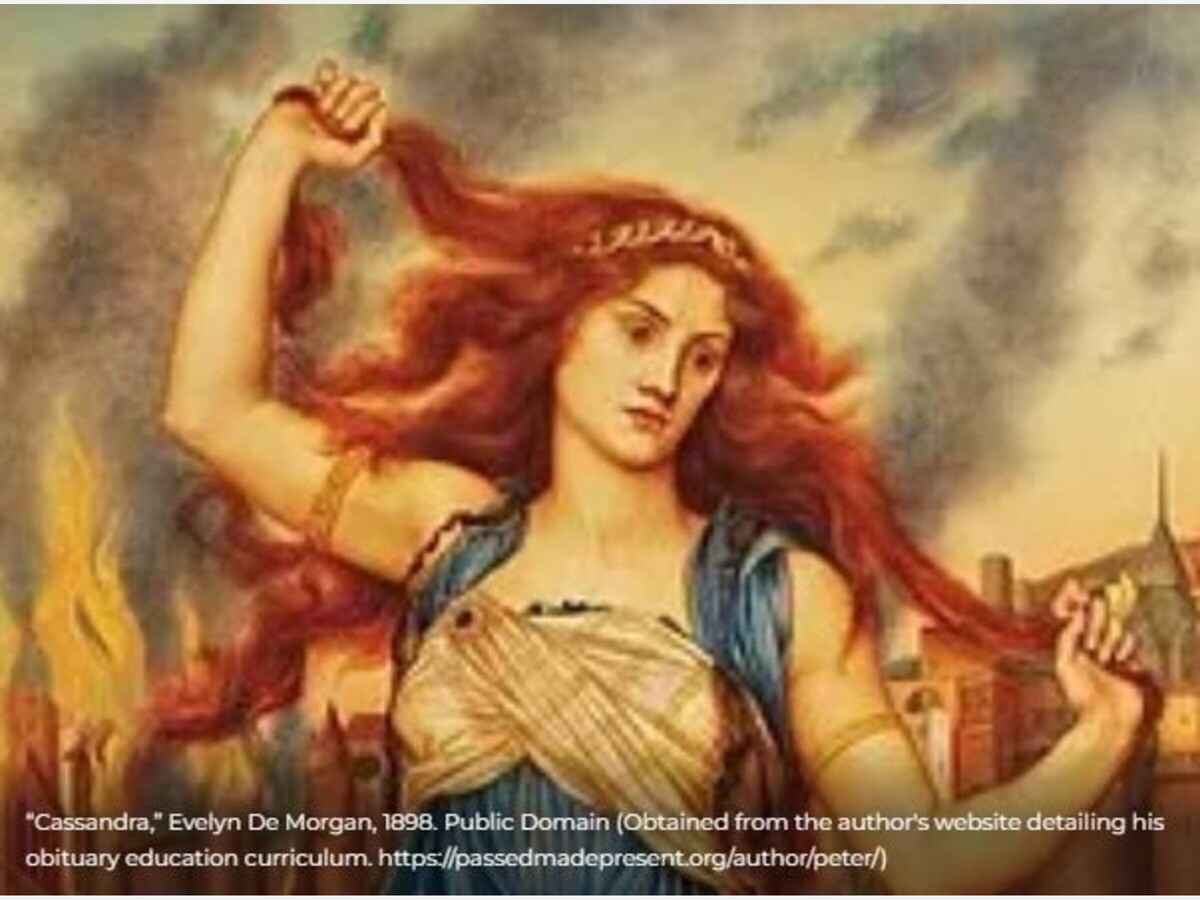Image

by Peter Sipe, CommonWealth Beacon
October 12, 2024
DORIS ALLEN lived for almost a century, during which she was a newspaper editor, a prisoner of war interrogator, a private investigator, a clinical psychologist, and a trumpeter. Which, in the full life department, is not too shabby. She also did pretty well in the world historical department: she predicted, within 24 hours, when the Tet Offensive would occur.
The Tet Offensive was the turning point of the Vietnam War. The surprise attack shocked Americans, and popular support never recovered. US troops left a few years later, unvictorious. Why wasn’t Doris Allen’s warning heeded? In her own words, “My credibility was like nothing: woman - Black woman, at that.”
Refusing to listen to women is, alas, an enduring phenomenon. Cassandra warned her city of their fate should they accept the Trojan horse. Among the 1,200 Israelis killed last October 7 were several of the young female soldiers who had told their superiors Hamas would attack.
What would have happened had Cassandra, or those Israeli women, been listened to? Those are the questions that came to mind when I read Doris Allen’s obituary in the New York Times, wondering how history would be different if she’d been heard. There’s a pretty solid lesson plan in there, I thought. I’m a teacher, you see, and I think like that when I read a good obituary.
In fact, I find obituaries such excellent educational resources that I’ve put together an obituary curriculum. Designed for middle school students, this curriculum is completely free. Because, let’s face it, an obituary curriculum isn’t just a tough sell, it might be hard to even give away. There’s a bit of a branding problem. The death thing.
So let’s get that out of the way: obituaries are about life, not death - death is merely the detail that gets these stories of life printed. And kids should read these life stories because they are:
I’d never heard of Doris Allen until I read her obituary in June, after finishing the curriculum. Naturally, I wished I’d included hers. The thing is, I have that thought pretty much every day when I read the obits pages. Which is my point exactly. Every single day there are informative articles about interesting people from whom we can draw inspiration. It would be a shame for us, especially our youth, to miss their acquaintance. After all, we can tell our kids that life is full of possibility, or we can let remarkable people like Doris Allen show them. Reading obituaries is a lifelong habit worth developing early.
Peter Sipe is a teacher at a public middle school in Massachusetts. The obituary curriculum is free thanks to the generosity of the Mercatus Center’s Program on Pluralism and Civil Exchange.
This article first appeared on CommonWealth Beacon and is republished here under a Creative Commons license.

PARSELY = { autotrack: false, onload: function() { PARSELY.beacon.trackPageView({ url: "https://commonwealthbeacon.org/opinion/why-kids-should-read-obituaries/", urlref: window.location.href }); } }